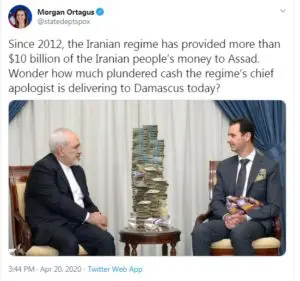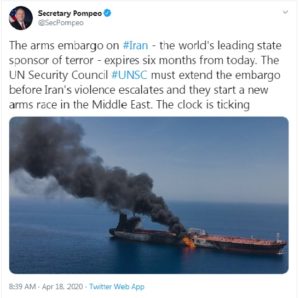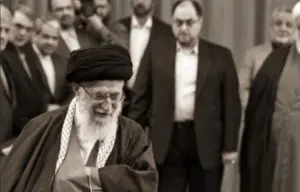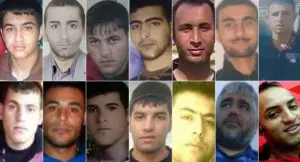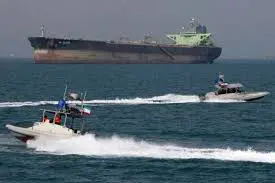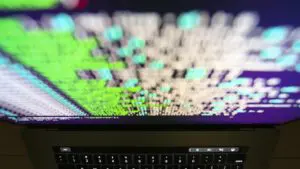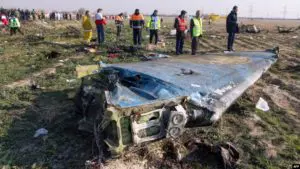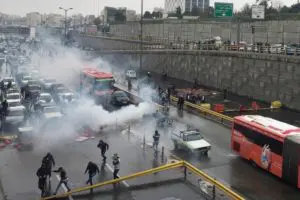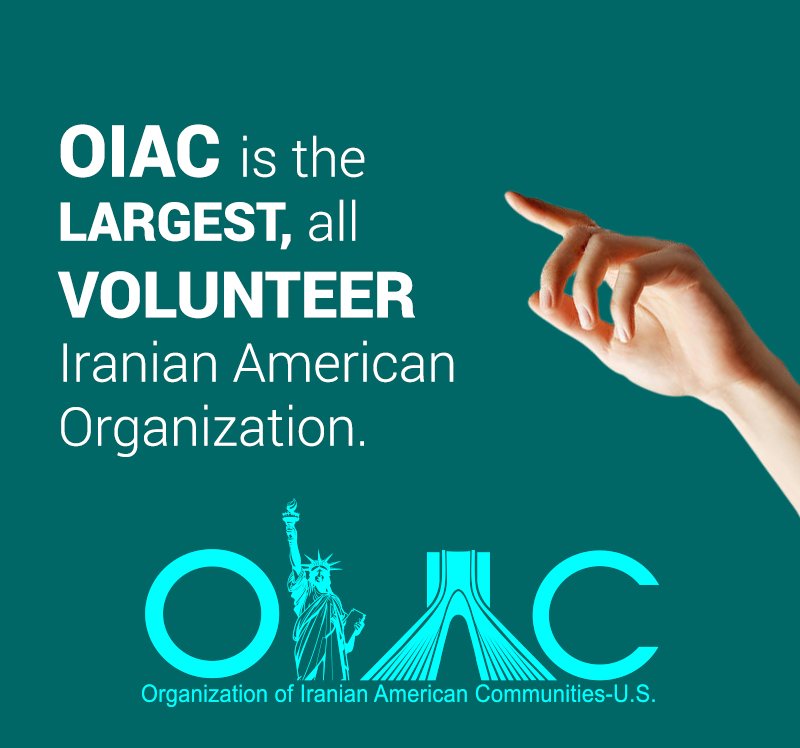Iran: A Glance at the Supreme Leader’s Mafia
Iran Focus,, April 17, 2020
While the Iranian people are struggling against the novel coronavirus, the government seeks to achieve economic-political interests through this ominous health crisis.
In this regard, officials frequently claim that U.S. sanctions disturb the country’s operation to contain the virus. However, they have yet to elaborate on why they refrain from using the huge wealth of the supreme leader-dominated financial institutions and holdings?
In this regard, dissidents shed light on properties of several institutions like the Execution of Imam Khomeini’s Order (EIKO), Astan-e Quds Razavi, credit institutions of the Revolutionary Guard (IRGC) and the state security forces, Mostazafan Foundations, Endowment of Charity organization, Khatam al-Anbiya Construction Headquarters, Imam Khomeini’s Relief Foundation, and many IRGC front companies.
Social media activists also blamed authorities for squandering the country’s asset for the interference in neighboring countries’ affairs, instead of providing necessary health and hygienic equipment and supplies for the people.
Subsequently, on April 7, Bahram Parsaei, a member of the Parliament (Majlis), reflected the society’s demand over the Khamenei-controlled institutions. “By using the National Reserve Fund and institutions that always enjoy special privileges and exemptions, like the Mostazafan Foundation, the EIKO, Astan-e Quds, Endowment organizations, all should serve the people for two months and offer their all assets,” Parsaei said in the Majlis session.
A week later, on April 14, IRNA news agency announced, “’ Imam Hassan Mojtaba’ base has been founded by the cooperation of the IRGC, Basij paramilitary force, Mostazafan Foundation, Imam Khomeini’s Relief Foundation, EIKO, and Astan-e Quds to support 3.5 million needy families.”
Click to read more
Names, Pictures of Prisoners Killed in Ahvaz Prison Riots
Iran-HRM, April 18, 2020
Human rights sources have identified more prisoners killed by security forces in Ahvaz prison riots over fears of contracting the coronavirus. The state security forces responded to the coronavirus-related rioting late March by firing live ammunition and tear gas.
According to prisoners’ relatives, dozens of prisoners were suffocated with teargas, burned to death during a prison riot over conditions, amid an outbreak of Covid-19.
The authorities have tried to cover up the real number of those killed. They have not yet provided accurate numbers of those killed.
The Intelligence Ministry branch in Ahvaz has warned the relatives of the victims of Sheiban and Sepidar prisons, against disclosing the cause of death of their loved ones. In order to prevent the news of the repression of the prisoners, the prison phone lines are cut off, and the (prison) officials do not respond to the families.
Amnesty International said it feared around 36 prisoners have been killed by Iranian regime enforcers attempting to suppress uprisings in at least eight prisons around the country.Citing sources inside Iran, Amnesty alleged live ammunition was used to quell protests by detainees fearful they would become sick with Covid-19. Amnesty cited at least one case in which a prisoner was possibly beaten to death.
Meanwhile, there are reports indicating that several other inmates have been harmed by security forces during the protests.
Click to read more
Iran: Coronavirus Death Toll Exceeds 32,800 in 294 Cities
Maryam Rajavi urges the international community to stop executions and secure release of prisoners to prevent a humanitarian tragedy
NCR-Iran.org, April 20, 2020
The People’s Mojahedin Organization of Iran (PMOI / MEK) announced on Monday, April 20, 2020, that the Coronavirus fatalities in 294 cities across Iran have exceeded 32,800. The number of victims in Tehran is 5,550, Khorasan Razavi 2,595, Mazandaran 2,170, Khuzestan 1,450, East Azerbaijan 1,240, West Azerbaijan 990, Lorestan 738, Central Province 510, Bushehr 250, and Kohgiluyeh and Boyer-Ahmad 185.
According to reports from medical staff and eyewitnesses in hospitals as well as cemetery officials, the number of Coronavirus patients and fatalities in Urmia, Bukan, Sardasht, and Piranshahr have increased in recent days. Urmia cemetery staff, who work round-the-clock, seven days a week, are under a lot of pressure. In Tabriz, many patients have died in their homes. Based on the regime’s instructions, several physicians have issued burial certificates citing non-Coronavirus causes. There are several examples where they have not even informed the Health Ministry. In the last two days, at least 30 people were similarly buried in Tabriz. Razi and Imam Reza, Shohada, and Sina hospitals in Tabriz are full of Coronavirus patients. People are anxious that with the opening of inter-provincial traffic, the number of patients and deaths will increase significantly.
According to doctors in Shiraz, the number of Coronavirus victims in the city has recently increased, and dozens of people have died in Ali Asghar Hospital.
Meanwhile, fears from popular uprisings and calls on the government to make use of significant holdings controlled by Ali Khamenei and the IRGC are mounting. Today, Parvaneh Salahshouri, a regime parliament deputy, told the state-official news agency ILNA, “It should become clear whether or not institutions like the Mostazafan (Abased) Foundation, whose name stands for the needy and the poor, are willing to do something for those sectors… Hardly anything is left of from religious beliefs as we are not applying religious edicts and values today. Under the current circumstances, the ruling elites have to offer whatever they possess of to the people. Of course, public assets are not limited to state reserves; there are companies with huge revenues that are not supervised by any authority. Mr. Naghavian once said in an interview that those companies hold 60 % of the country’s budget. If this proves right, then we should have thought of it earlier.”
Click to read more
Iranian Navy Temporarily Seizes Vessel, Sparking Persian Gulf Alert
Armed men boarded the ship and redirected it into Iranian waters
The Wall Street Journal, April 14, 2020
Iranian naval forces seized a Hong Kong-flagged tanker and redirected the vessel into Iranian waters before releasing it, according to Western and Emirati officials, prompting a warning Tuesday to ships along the Persian Gulf’s key oil export route. The alert comes amid mounting Iranian assertiveness along the key oil export route, say Western security officials, and as broader regional tensions simmer between Tehran and Saudi Arabia as well as Western powers.
Iran will sell around 10% of holdings in one of its largest state-managed investment companies on the Tehran Stock Exchange to raise money for the government’s efforts to contain the coronavirus, President Hassan Rouhani said at a cabinet meeting. The Social Security Investment Co., also known as Shasta, is the investment arm of the organization that provides benefits, health cover and pensions to around 40 million Iranians.
Almost five billion dollars of the Islamic Republic’s money is missing, says the Director of the Supreme Audit Court of Iran (SAC), Adel Azar. Based on the official rate of 42,000 rials for one dollar, the Islamic Republic government distributes billions of cheap dollars among local importers to buy essential goods from overseas. Many of these importers are politically well-connected individuals. Nevertheless, according to the SAC director, Adel Azar, $4.8 billion has been distributed, but no goods and products have been imported.
Click to read more
Iran Protests & more




Iran is using chat apps to spy on its citizens, researchers say
Data breach shows Iranian authorities are using new techniques to collect and analyse huge troves of information
The National, April 19, 2020
Bob Diachenko, a security researcher in Ukraine, spends part of his days searching the internet for troves of data that aren’t secured properly, in order to patch them up so they aren’t exploited by hackers.
Last month, he came across an unsecured server storing information on 42 million messaging accounts, nearly all from Iran and tied to the chat app Telegram.
There were no immediate clues as to who had obtained the data and placed it on the server. There was only a landing page, all black, with the logo of a white eagle and a message in Farsi.
“Welcome to the Hunting System,” it said.
Mr Diachenko said he notified an Iranian cybersecurity agency, and soon after that, the server was taken down. But before it vanished, other cybersleuths began their own investigations. Ultimately, that led them to a hacking group with an unlikely nickname – Charming Kitten – and a startling conclusion: Mr Diachenko had stumbled across an Iranian government spying operation.
“For more than 10 years, I have been monitoring Iranian cyber-attacks and surveillance, and I have never seen anything like this,” said Amir Rashidi, an Iranian internet security and digital rights researcher, who is based in New York. “They could use this to go after my relatives, my friends, my family.”
The trove of data, portions of which were reviewed by Bloomberg , contained usernames, phone numbers, user biographies, and unique codes – or “hashes” – associated with the accounts stored on the server.
It’s not clear if the data was mostly from Telegram users or from users of unofficial versions of the app that became popular after Telegram was banned in Iran in 2018. Some of the unofficial apps, which use the same source code as Telegram, have been previously linked to Iran’s government.
Click to read more
Exclusive: Iran Pushing Ukraine Not To Take Action For Downed Plane
Radio Farda, April 14, 2020
Radio Farda has learned that Iran is pushing Ukraine to sign a memorandum of understanding obliging Ukraine and the families of victims of flight 752, shot down over Tehran, to waive their right to pursue the matter any further through courts.
Iran’s Revolutionary Guard fired two missiles at Ukraine’s flight 752 on January 8 in the wake of Iran’s missile attacks on Iraqi military bases hosting U.S forces. Iranian authorities took responsibility for downing the flight and killing 176 passengers and crew members onboard the plane after three days of denials and later claiming that ‘human error” was responsible for shooting the plane.
Radio Farda has learned that Iran has sent the draft of a memorandum of understanding (MoU) to the Ukrainian Foreign Ministry according to which Ukraine and the families of the victims are to accept “human error” as the cause of the crash. The said document also stipulates that Ukraine and the families of the victims should not pursue criminal and judicial action against Iran in return for the payment of compensation by Iran and releasing the plane’s flight recorder’s contents after they are analyzed.
To clarify issues related to a possible MoU proposed by Iran, Radio Farda asked Andriy Guck, an international aviation law expert to comment on MoU possible text. He pointed out that Iran may be seeking to create disunity among the countries whose nationals were killed in the crash by seeking to reach such a separate agreement with Ukraine.
Guck also said the fact that Iranian authorities claim human error caused the crash of the Ukrainian airliner does not mean that Iran has taken responsibility for the tragedy. “The question remains whether Iran is prepared to be accountable, explain why the airspace was not closed and the reasons for the human error, compensate it or not,” he said and added that the MoU draft submitted to the Ukrainian Foreign Ministry by Iran does not make any mention of Iran’s accountability and sets few conditions to start compensation negotiations..
Click to read more
Commentary: The Next Iranian Revolution; Why Washington Should Seek Regime Change in Tehran
Foreign Affairs, May/June, 2020 By Eric Edelman and Ray Takeyh
“Regime change” is a toxic phrase in Washington. It conjures up images of the Iraq war, with the United States trapped in a quagmire of its own making. That is why those who favor a coercive U.S. approach to Iran are routinely charged with secretly supporting regime change. In response, the accused almost always deny it. They don’t want regime change, they insist: they just want the Islamic Republic’s theocrats to change their behavior.
But no such transformation will ever take place, because the Iranian regime remains a revolutionary movement that will never accommodate the United States. That is why regime change is not a radical or reckless idea but the most pragmatic and effective goal for U.S. policy toward Iran—indeed, it is the only objective that has any chance of meaningfully reducing the Iranian threat.
Backing regime change emphatically does not mean advocating a military invasion of Iran, but it does mean pushing for the United States to use every instrument at its disposal to undermine Iran’s clerical state, including covert assistance to dissidents. The United States cannot overthrow the Islamic Republic, but it can contribute to conditions that would make such a demise possible. The regime is weaker than many Western analysts believe; a campaign of external pressure and internal resistance could conceivably topple it. Recent years have witnessed explosions of broad-based public opposition to the regime. Iranians are hungry for better leadership. The question for Washington should be not whether to embrace regime change but how to help the Iranian people achieve it.
WE ARE NEVER EVER GETTING TOGETHER
For the past 40 years, almost every U.S. president has tried to reach some kind of accommodation with Iran. Ronald Reagan’s attempt led him to the greatest scandal of his presidency, when he traded arms for Americans held hostage in Lebanon by the Iranian-backed militia Hezbollah. Bill Clinton unsuccessfully sought to develop a road map for détente with Tehran. George W. Bush came into office displaying
moral contempt for the clerical autocracy, only to have his administration spend a considerable amount of time talking to Iran’s leaders about the future of Afghanistan and Iraq. And then came Barack Obama, whose desperation to make a deal with Tehran produced an agreement that granted Iran sanctions relief and paved its path to the bomb.
Click to read more
Donation
501 (c)(3) Tax deductible
Please,
Donate to Organization Of Iranian American Communities
Your donation will help OIAC advocates for a democratic, secular and non-nuclear government in Iran. Founded on the respect for human rights, gender equality, religious and ethnic tolerance, as wells as social, economic justice, and security for America. Our goal is to organize Iranian-American communities in the United States to promote these values.
Thank You,
http://www.oiac-us.com/donation/

